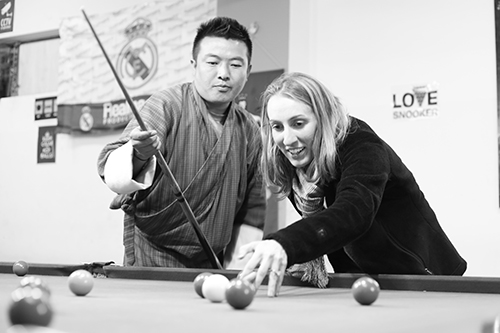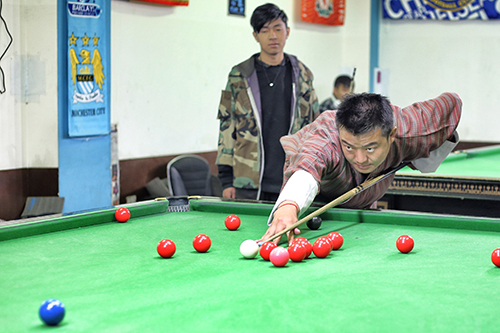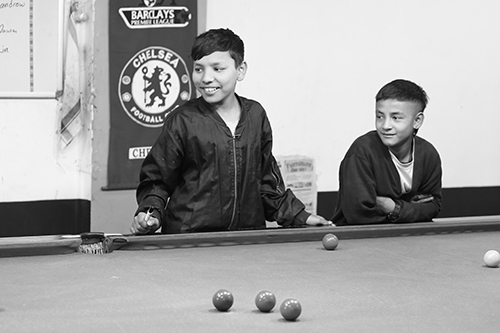Thimphu is littered with dogs, high off the knowledge that no one will do them harm. “That dog”, they say, “could be your mother from a past life.”


Bhutan is a deeply Buddhist country, with an unapologetic tie between church and state. Urbanization is moving people from the countryside into the overcrowded and rapidly developing city of Thimphu, now the size of Burlington, Vermont. The city itself is very safe, far more than San Francisco. We don’t clutch our bags or eye every stranger. In Bhutan there is only petty theft, one of the few countries in the world with no US State Department warning. Here, the police don’t carry guns. Those who own a weapon own a compound bow, but it’s not a weapon any more than a hockey stick in Canada; Archery is the national sport. There is free healthcare for all, free education for all, and any semblance of a foster care system is replaced by government-funded monasteries and nunneries. Surely it can be argued that it’s wrong to force religion on children, but instead of being passed from home to home until the age of 18, Bhutanese children are given a purpose, a means of making money, and a deeply respected place in society. There are road signs that curiously read “Thanks”. Just thanks, without explanation. Even the more threatening signs about drinking and driving or speeding are transformed into cutsie one-liners. “If you’re married, divorce speed.” It’s not naiveté; it’s that there’s no need.



Bhutan is a communal culture where that, perhaps because of the strong Buddhist influence, people have seemingly silently agreed to respect one another. As a sign of unity, Bhutanese people wear a national uniform. There’s an attitude that life isn’t to be won; it’s to be lived together. But with TV, Internet and a currency (all new for Bhutan), the major city in the land of happiness is no longer free from the trappings of the modern world. As our guide explained to us, Buddhism teaches contentment and the idea of enough, but of course it’s only human to want what others have. Bhutan, we realize, is stuck between the desire to preserve a culture and identity, and the desire to benefit from the modern world, even when the two seem to stand in stark contrast with one another. As we reflect on what Bhutan used to be – something perhaps more closely resembling the happiness for which they’re known – it’s important not to idealize the past. The “good old days” brought with it its own set of problems. And so we move through Thimphu, visiting chortens where people endlessly spin prayer wheels and then get back into our car while the Thimphu City Thugs play on the radio.

“And if you hit upon the idea that this or that country is safe, prosperous, or fortunate, give it up, my friend… for you ought to know that the world is ablaze with the fires of some faults of others. There is certain to be some suffering… no safe refuge can thus be found in the world.” – Buddhist scriptures




